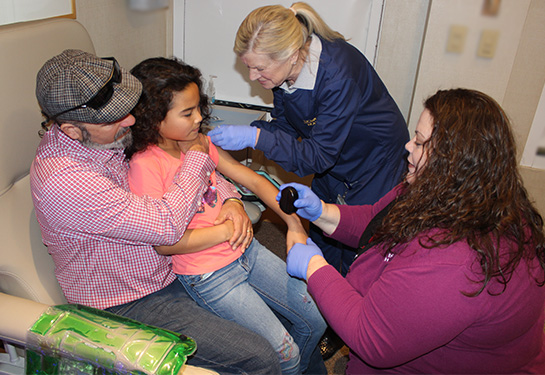What is the link between vitamin D levels and COVID-19?
A recent study has shown a correlation between vitamin D deficiency and COVID-19 severity and mortality.

The study is based on data from Israel’s first two coronavirus waves before vaccines were widely available. It found that people with a vitamin D deficiency are more likely to develop a severe or critical case of COVID-19 compared to people who had sufficient levels of the vitamin in their blood.
Patients with a vitamin D deficiency were 14 times more likely to have a severe or critical case of COVID-19. Additionally, the mortality rate for those with insufficient vitamin D levels was 25.6%, compared with 2.3% among those with adequate levels.
To learn more about the correlation between vitamin D levels and COVID-19 outcomes, we turned to UC Davis Health’s Chief of Infectious Diseases Stuart Cohen.
What is the link between vitamin D deficiency and COVID-19 infections?
Vitamin D plays a role in the body’s immune system and is known to enhance the function of immune cells. In this case, Vitamin D inhibits some of the inflammation that can make COVID-19 more severe.
What do the latest studies say?
Recent studies suggest that vitamin D deficiency is an independent risk for more severe disease regardless of age or weight. It is also possible that vitamin D deficiency increases the risk of getting infected with COVID-19, however that makes less immunological sense.
Could vitamin D be used to treat patients with COVID-19?
Supplementing vitamin D may play a role in treating patients, but the data is relatively weak at this time. It surely is not a way to treat COVID-19 in and of itself.
What other conditions are linked to vitamin D deficiency?
Vitamin D deficiency is primarily associated with bone health and osteoporosis. There has also been some research that suggests it may also play a role in cardiovascular diseases and has some links to other infections.
How common is vitamin D deficiency?
To analyze this question, we need to look at a combination of what is defined as vitamin D deficiency and insufficiency, which equals about 25% of the population in the United States.
Why do we need vitamin D?
Vitamin D is important for bone health, heart health and keeping the immune system working appropriately. It is also an important factor in appropriate muscle function.
What are the best sources of vitamin D?
Most vitamin D comes from direct sunlight on the skin. It's also found in foods such as fatty fish, egg yolks and fortified dairy products. Mushrooms are one of the few non-animal sources of vitamin D.
How much vitamin D does a person need daily?
Exposure to sunlight triggers vitamin D synthesis in the skin. Adults who do not have regular, effective sun exposure year-round should consume at least 600 to 800 international units. It also should be noted that people with darker pigmented skin are at higher risk for low concentrations of vitamin D.



